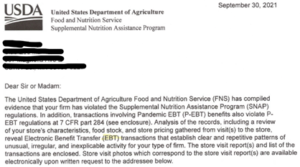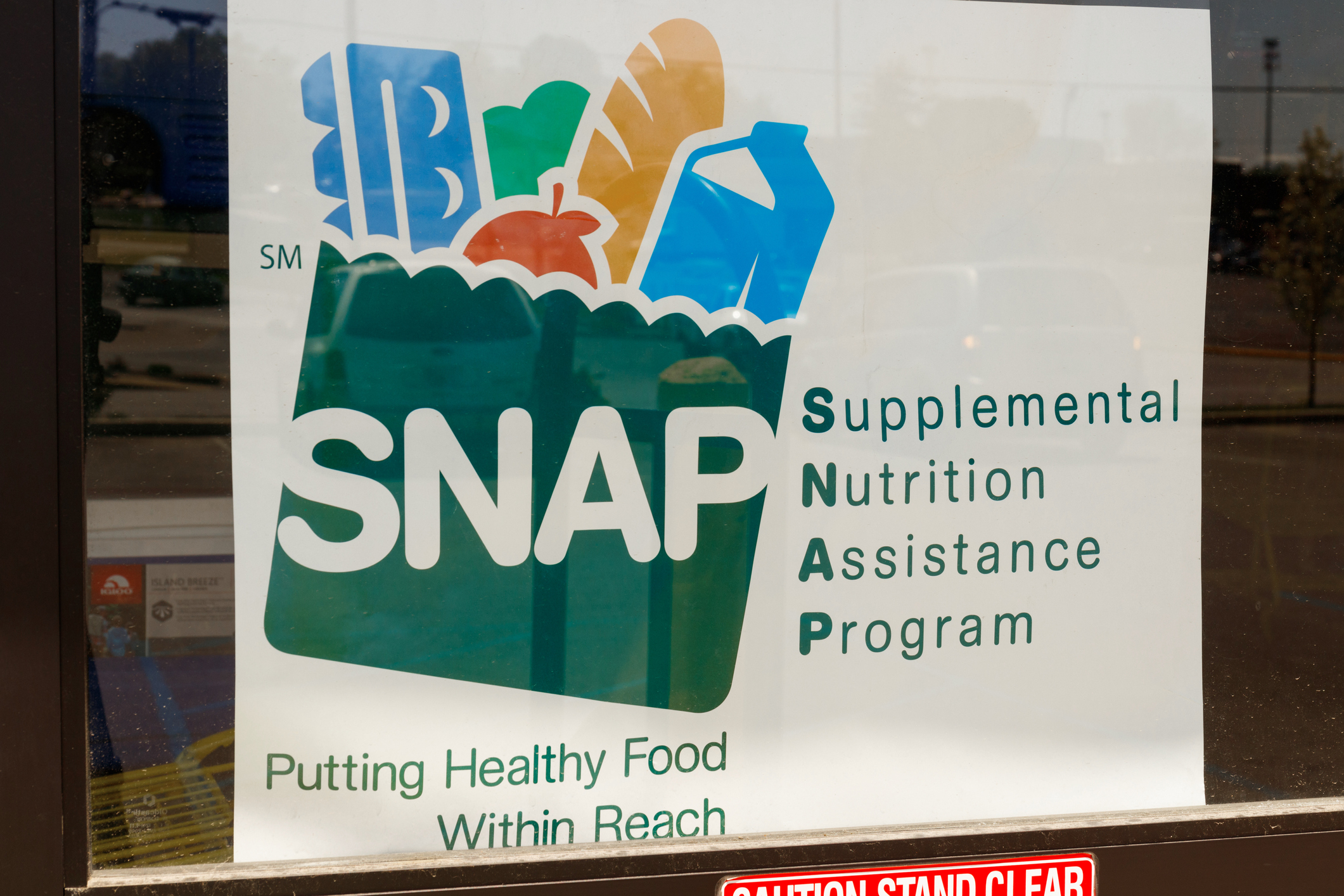If you are reading this, you are probably a Supplemental Nutrition Assistance Program (SNAP) retailer who has recently received a Charge Letter from the United States Department of Agriculture (USDA). The beginning of the Charge Letter probably looks a lot like what you see below.

Receiving this Charge Letter will bring two questions immediately to mind:
- How did this happen?
- What do I do from here?
This is the first in a series of articles addressing what a SNAP retailer can do to: (1) regain (or retain) its ability to participate in the SNAP program when the USDA is seeking its disqualification; or (2) challenge a penalty imposed by the USDA, when the USDA is not seeking disqualification.
How Did This Happen?—Trafficking
The USDA’s Food and Nutrition Service (FNS) can permanently disqualify a SNAP retailer that it finds is “trafficking” in SNAP benefits.[1] Trafficking means “[t]he buying, selling, stealing, or otherwise effecting an exchange of SNAP benefits…for cash or consideration other than eligible food…”[2]
If the USDA is planning to issue a SNAP disqualification or impose a penalty, they must first send out a Charge Letter. This Charge Letter contains the specific charges that the USDA believes fit the proposed disqualification or penalty.
When making a disqualification or penalty determination, FNS “shall consider”: (1) the alleged “nature and scope of the violations committed”; (2) “[a]ny prior action taken by FNS to warn the firm about the possibility that violations are occurring”; and (3) “[a]ny other evidence that shows the firm’s intent to violate the regulations.”[3] A finding of trafficking “may include facts established through on-site investigations, inconsistent redemption data, [and] evidence obtained through a transaction report under an electronic benefit transfer system ….”[4]
What Do I Do From Here?
- Contact an Attorney ASAP. SNAP Charge Letters to retailers require a response within 10 days. The longer a retailer waits, the harder it is to prevent a disqualification. As I will discuss in greater detail in later articles, your response to the Charge Letter is your first and best chance to avoid a disqualification, or at least lesson the penalty. You will need an experienced attorney in SNAP disqualifications and penalties if you want to rebut the allegations successfully.
- Preparation and Presentation of Evidence. Two types of documentation are critical: (1) receipts for each of the individual transactions during the review period; and (2) Inventory invoices for the review period. Your attorney can provide guidance in these specific circumstances, but usually taking photos of the store and obtaining statements from witnesses are the most crucial.
- Don’t Try to Make Peace with the USDA on Your Own. I have seen this scenario play out all too often. A SNAP retailer receives a Charge Letter; the retailer then provides a good-faith response hoping it will convince the USDA that trafficking did not occur; and then the USDA ultimately uses statements and evidence provided with SNAP retailer’s response to support its own decision to disqualify the retailer.
Final Thoughts
As with so many other businesses facing fines, punishment, and revocation of licenses, a SNAP retailer faced with a Charge Letter has an uphill battle. If you have received a Charge Letter, the USDA will disqualify you or impose a penalty unless you can mount a powerful defense. This is almost impossible for a SNAP retailer to do, on their own. The stakes are too great to fight that battle alone. Please contact me at (952) 746-2139 or bkenny@hjlawfirm.com if you would like to discuss any issues surrounding the SNAP program.
Stay tuned for the next installments in this series, addressing how SNAP retailers should respond to Charge Letters.
[1] 7 C.F.R. § 278.6. [2] Id. § 271.2. [3] 7 C.F.R. § 278.6(d). [4] Id. § 278.6(a).


